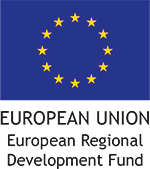HELCOM adopted 2 years ago a regional action plan on marine litter. The HELCOM goals are being implemented by projects within the EU Strategy for the Baltic Sea Region (EUSBSR). One of Policy Area Hazards´ actions is to promote research and innovative management, because there is still a lack of comprehensive knowledge about the environmental impact of most chemicals and hazardous substances, including marine litter. Policy makers need more information on these issues to make informed decisions. There is also a need for new and more innovative management options to reduce the use, release and effects of hazardous substances and marine litter in an efficient and cost-effective way on a macro-regional level.
BLASTIC is an important Baltic Sea wide project and it has been given the status of a flagship project of the EUSBSR. I believe it will bring new knowledge and give good instructions and recommendations to producers and distributors of materials, to cities and municipalities and also to us citizens for reducing marine litter.
Of course much can and has to be done nationally as well. In Finland we have for example a well working recycling system of beverage packages. The Finnish consumers return about 1,7 billion glass or plastic bottles or aluminium cans to the recycling system, which is easy to use in every food store. This means that a record level of more than 90 % of all beverage packages are recycled, which in turn saves energy, raw materials and waste.
The Programme of Measures of Finland´s Marine Strategy 2016-2021 includes a broad-scoped general survey on sources of littering, its amounts in different regions and an evaluation of the potential to reduce it. According to the results a national target on the reduction of marine litter will be proposed and implementation measures adopted, especially regarding plastic litter. Special attention will be paid to waste waters, storm waters, micro plastics in hygiene products, plastic packages and other use of plastics, derelict fishing gear and the waste management in ports. The plan also includes education and communication measures for citizens – after all half of the marine litter is consumer based.
Prime Minister of Finland, Juha Sipilä, speaking in the Annual Forum of the EUSBSR in Stockholm last November, appealed to all Baltic Sea countries to act jointly for an EU wide ban on microplastics in cosmetics and hygiene products as one step to reduce marine litter. His government is keenly promoting circular economy, which also helps fighting the problem.
I worked a few years ago in Hamburg as Finland´s Consul General. The Consulate was situated in Finnland Haus in the heart of the city, close to the bridge between lakes Aussenalster and Binnenalster. The streets in central Hamburg are the cleanest I have seen in any metropole. There are red waste bins every 50 meters, asking with humorous slogans people to use them– and they do. I hope this attitude will spread around the Baltic Sea. We are all responsible of preventing the litter from wandering to the Sea and its ecosystems.

